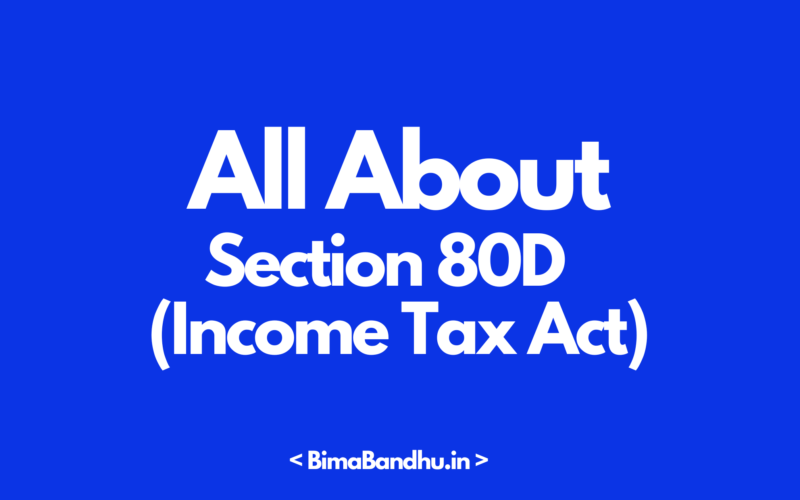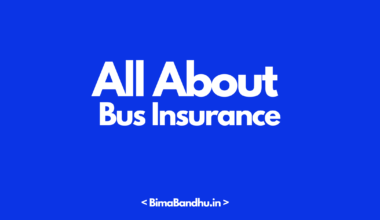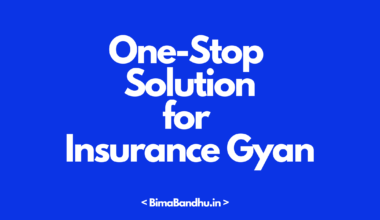In terms of taxation, many of us often feel like we are being faced with a daunting puzzle and a significant portion of our income seemingly vanishing into thin air as taxes. However, there exists a financial maneuver that not only protects your well-being but also eases the burden on your finances. Allow us to introduce you to Section 80D – a lesser-known gem in the Indian Income Tax Act.
In our nation, good health is synonymous with prosperity. This is why it is paramount to preserve both physical and fiscal health. Section 80D, in this regard, can be your savior. It’s not just a cryptic clause of the tax law but a key to unlocking substantial tax benefits while ensuring comprehensive health coverage for you and your family.
Whether you’re a seasoned taxpayer looking to optimize your deductions or a newcomer eager to understand tax-saving options, knowing about Section 80D is indispensable. This guide will equip you with all the knowledge you need about Section 80D – from its fundamental concepts to the finer points.
What is Section 80D of the Income Tax Act?
Section 80D of the Income Tax Act, 1961 is a provision that encourages individuals to invest in health insurance while also providing them with tax benefits. This Section allows taxpayers to claim deductions for the premiums they pay towards health insurance policies, hence reducing their taxable income.
Here’s a breakdown of the key components of Section 80D:
-
Health insurance premium
It covers the premiums paid for various health insurance policies, including those for yourself, your spouse, dependent children, and parents.
-
Preventive health checkup
Section 80D also allows for an additional deduction for the expenses incurred on preventive health checkups for the insured individuals covered under the policy. However, this is part of the overall deduction limit and is not over and above the premium limits.
-
Mode of payment
To claim these deductions, you must pay the premiums through bank transfers, cheques, or online. Cash payments are not eligible for Section 80D deductions.
-
Individual and HUF eligibility
Both individuals and Hindu Undivided Families (HUFs) can claim deductions under this section.
Understanding the specifics of Section 80D can help reduce your tax liability and ensure that you and your family have access to adequate healthcare without straining your finances.
Also Read: List of IRDAI-Approved Health Insurance Companies in India
Which Deductions Are Allowed Under Section 80D?
Section 80D offers a range of deductions. Here are the finer details:
-
Health insurance premium paid
You can claim deductions for the health insurance premiums you pay for yourself, spouse, dependent children, and parents. This provision is designed to encourage families to invest in comprehensive health coverage, thereby promoting the overall well-being of insured individuals. The deduction limits vary depending on the age of the insured and are as follows:
- For those below 60 years of age:
– Up to ₹25,000 for premiums paid for self, spouse, and dependent children
– Up to ₹25,000 for premiums paid for parents
- For senior citizens (aged 60 or above):
– Up to ₹50,000 for premiums paid for parents
-
Payments for preventive health check-ups
In addition to premiums, Section 80D deductions also cover expenses up to ₹5,000 incurred on preventive health check-ups. This provision encourages individuals to take proactive steps towards maintaining their health by making regular check-ups more affordable.
Section 80D – Explained With an Example
Let’s delve deeper into how Section 80D works with the help of the following illustrative example:
Mr. Sharma, aged 45, and his wife, Mrs. Sharma, aged 42, have two dependent children. They also have Mr. Sharma’s parents, who are senior citizens, with both parents being over 60 years of age. The Sharmas are a typical Indian family concerned about the health and financial security of their loved ones.
To ensure their family’s well-being and avail of tax benefits, the Sharmas have purchased a family floater health insurance policy. The annual premium for this policy is ₹30,000. Additionally, they have purchased a separate health insurance policy for Mr. Sharma’s parents, with an annual premium of ₹25,000.
Let’s see how the Sharmas can maximize their deductions under Section 80D.
- The Sharmas can claim a deduction of up to ₹25,000 for the premiums paid for themselves and their dependent children. In this case, they can claim the entire ₹25,000, as their annual premium is ₹30,000, which falls within the limit.
- Mr. Sharma can claim an additional deduction of up to ₹25,000 for the premiums paid for his parents. However, the annual premium for his parents is ₹25,000, which is within the described limit, so he can claim the entire amount. In case the premium paid here is Rs. 52,000 (assumption), Mr. Sharma can claim Rs. 50,000 as deductions since both parents are over 60 years of age.
- The Sharmas can also claim an extra deduction of up to ₹5,000 for the expenses incurred on preventive health check-ups for their family. This could include annual health check-ups for Mr. Sharma, Mrs. Sharma, and their children.
In total, the Sharmas can claim deductions as follows:
- ₹25,000 for self, spouse, and dependent children
- ₹25,000 for parent’s premiums
- ₹5,000 for preventive health check-ups
This adds up to a substantial total of ₹80,000 in Section 80D deductions. This reduces their taxable income significantly and ensures that the Sharmas’ family and Mr. Sharma’s parents have comprehensive health coverage.
Tax Amount You Can Save Under Section 80D At A Glance
| Who is covered? | Premium amount paid (in Rs.) | Section 80D Deduction (in Rs.) | |
| For self, spouse, and kids | For parents | ||
| Individual and parents aged less than 60 years | 25,000 | 25,000 | 50,000 |
| Individuals and family are less than 60 years of age, while parents are more than 60 years of age | 25,000 | 50,000 | 75,000 |
| Both individuals and parents are above the age of 60 | 50,000 | 50,000 | 1,00,000 |
Preventive Health Checkups under Section 80D – Explained With an Example
Preventive health check-ups have become crucial to maintain one’s well-being. These check-ups help in the early detection of potential health issues and form a part of the proactive approach to a healthy lifestyle.
To further encourage individuals to prioritize their health, the Indian government has introduced tax deductions for preventive health check-ups under Section 80D. You can avail of this tax benefit on expenses incurred for preventive health check-ups for yourself, your spouse, children, and parents.
Let’s illustrate this with the following example:
Mr. Mehra is the head of a six-member family, which includes himself (36 years old), his wife (32), two children (10 and 12), his father (61), and his mother (61). Prashant is committed to safeguarding the health of his entire family.
Mr. Mehra purchased a family floater health insurance plan covering himself, his wife, and children. The annual premium for this policy is Rs 32,000. Additionally, he paid Rs 51,000 for health insurance for his parents. He also understands the importance of preventive health check-ups and spends money on it for himself and his parents. He incurred Rs 10,000 on his +check-up and Rs 12,000 for his parents’ check-up.
Here’s a breakdown of Prashant’s expenses and the tax deductions applicable:
| Expenses | Actual Expense | Maximum Deduction Under Section 80D | Total Deduction Applicable |
| Health Insurance Premium for Self, Spouse, and Children | Rs 32,000 | Rs 25,000 | Rs 25,000 |
| Preventive Health Check-up for Self, Spouse, and Children | Rs 10,000 | Rs 5,000 | Rs 5,000 |
| Health Insurance Premium for Senior Citizen Parents | Rs 51,000 | Rs 50,000 | Rs 50,000 |
| Preventive Health Check-up for Parents (Senior Citizens) | Rs 12,000 | Rs 5,000 | Rs 5,000 |
| Total Deductions Available for the year | Rs 75,000 |
** The total allowed deductions per year are inclusive of the preventive health checkups.
Recommended Read: Health Insurance for Parents in India
Section 80D Deductions for Multi-Year Health Insurance Premiums
Traditional health insurance policies require annual renewals typically. However, insurance companies now offer multi-year health insurance policies that allow individuals to pay premiums for coverage spanning multiple years, often up to two or three years. This option provides convenience and continuity in coverage.
In terms of the 80D deduction limit, you can claim the premium amount in proportion to the number of policy years. For example, if you purchase a three-year health insurance plan with a premium of Rs 15,000 per year and pay Rs 45,000 upfront, you can claim Rs. 15,000 as a deduction each year.
What are Deductions Under Section 80DD?
Section 80DD of the Income Tax Act also extends a helping hand to those who care for dependents with disabilities. It provides tax deductions to ease the financial burden of medical expenses and support for such loved ones. Here’s a comprehensive overview of the deductions available under this section:
- Under Section 80DD, individuals can claim a tax deduction of up to Rs 75,000 per financial year on medical expenses incurred for the treatment of a dependent with a disability.
- In cases of the disability being defined to be 80% or more, the allowable tax deduction is Rs 1,25,000 per financial year.
- Such dependents can be your spouse, children, parents, or siblings who have a disability.
- To claim these deductions, you need to provide a medical certificate issued by the central or state government’s medical board confirming the disability. You can also submit this certificate when filing income tax returns.
What are Deductions Under Section 80DDB?
Under Section 80DDB, you can claim a tax deduction of up to Rs 40,000 per financial year on the medical expenses incurred for the treatment of specified diseases. These include critical illnesses, including malignant cancers, AIDS, dementia, Parkinson’s disease, and chronic renal failure.
- For senior citizens, the tax deduction limit is up to Rs 1 lakh per financial year.
- You can claim Section 80DDB deductions for medical expenses incurred on the treatment of yourself, your spouse, parents, children, and siblings.
- To qualify for these deductions, you need to provide proof of availing treatment for a specified disease.
Section 80D Vs 80C – Comparison
Section 80D and Section 80C are two popular sections of the Income Tax Act allowing taxpayers to claim deductions. However, each of them serves different purposes and covers distinct financial aspects. Here’s a detailed comparison of these two sections:
| Parameter | Section 80D | Section 80C |
| Purpose | Provides deductions on health insurance premiums, including policies for self, family, and parents | Offers deductions on various financial investments and expenses |
| Applicability | Applicable for health insurance premiums. | Applicable for various financial instruments and expenses such as life insurance, PPF, EPF, ELSS, tax-saving FDs, and more |
| Deduction Limits | Up to Rs. 1 lakh | Up to Rs 1.5 lakh for the overall limit, covering various investments and expenses combined |
| Type of Deduction | Provides specific deductions for health insurance premiums and related expenses | Provides a broader deduction for various investments and expenses |
| Documentation | Medical certificates for preventive health check-ups are required | Documentation varies depending on the specific financial investment or expense |
Also Read: All About 50 Lakhs Health Insurance
Things to Remember While Availing Section 80D Deductions
- Ensure that you are aware of the family members for whom you can claim deductions under Section 80D. This typically includes yourself, your spouse, children, and parents.
- The deduction limits for premiums may vary based on the age of the insured individuals. Different limits apply for those below 60 years of age and senior citizens (aged 60 or above).
- When claiming deductions under Sections 80DDB (for specified diseases) and 80DD (for dependent persons with disabilities), you need to provide proof of treatment for the specified ailment or disability.
- Keep thorough records of your health insurance premiums, medical bills, and preventive health check-up expenses. Proper documentation is crucial to claim deductions.
- Stay updated on changes in tax laws, as deduction limits and eligible expenses may change from one financial year to the next.
- Health insurance premiums paid in cash are not eligible for tax deductions under Section 80D.
- If you and your parents have shared the medical insurance premiums, both can claim tax deductions for the portions paid under Section 80D. You need to ensure that the total claimed deductions do not exceed the maximum limits applicable.
- The premiums paid for siblings, grandparents, uncles, and aunts are not qualified for tax deductions.
- The premiums paid on behalf of working children are not eligible for deductions under Section 80D.
- Group health insurance premiums (as covered under the employee benefit program) are not eligible for deductions under Section 80D. These premiums are often part of the employment benefits package and do not fall under the scope of this section.
- Section 80D deductions apply to the base health insurance premium. No deductions are provided for the service tax and cess amount added to health insurance premiums.
FAQs
Who is eligible for tax deduction under Section 80D?
Individuals and Hindu Undivided Families (HUFs) are eligible for tax deductions under Section 80D. These deductions are applicable for health insurance premiums paid for oneself, spouse, dependent children, and parents.
Which modes of payments are eligible for deduction under Section 80D?
To claim deductions under Section 80D, one needs to pay health insurance premiums through modes such as bank transfers, cheques, or digital payments. Cash payments are not eligible for deductions.
Can I claim deductions under both 80D and 80C?
You can claim deductions under 80D (for health insurance premiums) and Section 80C (for various financial instruments and expenses) simultaneously. These sections serve different purposes and cover distinct financial aspects.
Can I claim 80D deductions for parents without any bills?
While you may not need bills to claim Section 80D deductions, you must provide a medical certificate from the central or state government’s medical board to validate the disability of your parents when claiming deductions under Section 80DDB.
Can I claim 80D deductions for more than one health insurance policy?
Yes, you can claim deductions for premiums paid on more than one health insurance policy. However, the total deduction cannot exceed the applicable limits, which vary based on the age of the insured individuals.
What is the 80D limit?
The Section 80D limit depends on the age of the insured individuals. For those below 60 years of age, the limit is up to Rs 25,000, while for senior citizens, the limit is up to Rs 50,000. These limits apply to premiums paid for health insurance coverage.
Is 80D part of 80C?
No, Section 80D is separate from Section 80C. While both sections provide tax deductions, they serve different purposes. Section 80D focuses on health insurance premiums, while Section 80C encompasses various financial instruments.
Read BimaBandhu’s Insurance Guides






